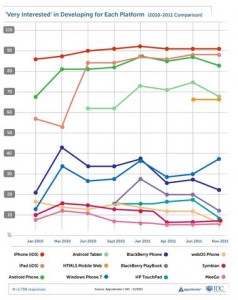By Lou Covey Editorial Director for Footwasher Media
The web is awash with reviews of the Kindle Fire, many positive (some scathingly negative), and the comparisons to the iPad are just as plentiful. The question that keeps coming up, however, is the Fire a game changer in the tablet war? Probably not for Apple, but probably in the Android world and definitely in the remains of RIM's empire.
In the iPad comparison, the Fire is the inexpensive, entry-level tablet for noobs. At $199 it is better than half the price of the iPad, which means people who want the media experience of a tablet at bargain prices, it's a good choice. Although Apple has released the latest version of the iPod Touch at the same price, so if the user doesn't care about the screen size, you can get a more flexible, powerful product from Apple, still. The Fire performs slower and using key pad apps will be difficult on the much smaller screen, barring significant improvements in touch technology.
The iPad, especially when paired with an after-market bluetooth keyboard, makes an effective laptop replacement. There are even productivity apps that make it possible to use the iPad for word processing, spreadsheets and presentations. All of that is lacking in the Fire. As far as content goes, the fire serves well as a distribution method for Amazon, but like most Android devices, it lacks the depth of apps in the iOS universe. So Apple execs won't be losing any sleep over the sales of the Fire. Google, on the other hand... The introduction of the Fire further fragments the developer community that is divided between iOS, Android, Blackberry and even Microsoft 7 Phone (MS7). Developers can bypass the Google Market

and deal directly with Amazon, which is great for Amazon but not so much for Google. IDC just released a quarterly survey that shows that developers are abandoning all other tablets in north America to create apps for the Fire. The trend seems to be going that way in Asia and Europe, as well. So while Google was looking at Apple as their main competitor, Amazon has been snaking the market out from under them. Yoink! The future for RIM's Blackberry is even grimmer. The same IDC report said MS7 has now surpassed RIM as the third place tablet OS developers prefer to work in. Along with the continuing decline in the overall device market, RIM seems to be hanging on by it's fingernails. So the Fire IS a game changer for RIM. Their technology has just not kept up with the market development. The Playbook was a joke, a little less funny than HP's tablet.
RIM is going nowhere... except into someone else's division. RIM still has a lot of value. They have a pretty loyal customer base, albeit shrinking. They have that bag of Nortel patents in wireless technology, the best security platform and the best integration of MS Exchange and Lotus notes. Microsoft could become a serious competitor to Android and iOS if they bought RIM, and that would change the game for everyone.

 meme of
meme of